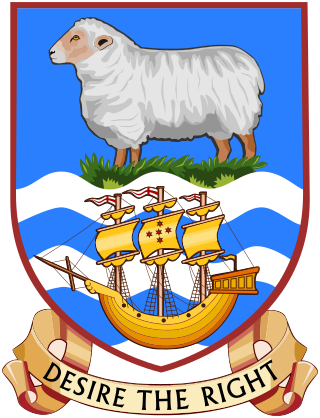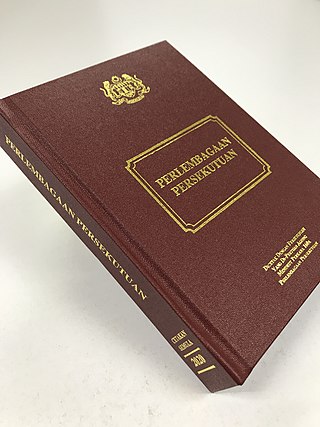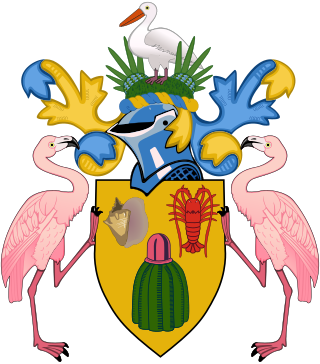Related Research Articles

The politics of the Falkland Islands takes place in a framework of a constitutional monarchy and parliamentary representative democratic dependency as set out by the constitution, whereby the Governor exercises the duties of head of state in the absence of the monarch and the Chief Executive is the head of the Civil Service, with an elected Legislative Assembly to propose new laws, national policy, approve finance and hold the executive to account.
The Director of Public Prosecutions (DPP) is the office or official charged with the prosecution of criminal offences in several criminal jurisdictions around the world. The title is used mainly in jurisdictions that are or have been members of the Commonwealth of Nations.

Michael Eugene Misick is a Turks and Caicos Islander politician who was the 7th Chief Minister of the Turks and Caicos Islands from 15 August 2003 to 9 August 2006 and was the 1st Premier of the Turks and Caicos Islands from 9 August 2006 to 23 March 2009. Misick is a member of the Progressive National Party (PNP) and became chief minister when his party, after eight years as the opposition party, gained two parliamentary seats in by-elections. In addition to being premier, he was also the minister for Civil Aviation, Commerce and Development, Planning, District Administration, Broadcasting Commission, Tourist Board, Turks and Caicos Investment Agency, and Tourism. Several other members of Misick's family have been politicians in the Turks and Caicos Islands, and important leaders in the PNP. Washington Misick, his brother, is the current Premier, former Chief Minister and former Minister of Finance.
Chapter 7: Executive Government.Chapter 7 of the 1997 Constitution is titled Executive Government. There are five Parts, further subdivided into thirty sections, which set out the organization, functions, and responsibilities of the executive branch of government. Modeled on the Westminster system, Fiji's constitution does not separate the Executive and Legislative branches of government as strictly as do many democracies, but despite considerable overlap, the branches of government are nevertheless constitutionally distinct.

The North Carolina Council of State is the collective body of ten elective executive offices in the state government of North Carolina, all of which are established by the state constitution. The Council of State includes the Governor, Lieutenant Governor, Secretary of State, State Auditor, Treasurer, Superintendent of Public Instruction, Attorney General, Commissioner of Agriculture, Commissioner of Labor, and Commissioner of Insurance. Together with the North Carolina Cabinet and several independent agencies, the Council of State offices constitute the executive branch of North Carolina's state government.

The Federal Constitution of Malaysia, which came into force in 1957 as the Constitution of the Federation of Malaya and was amended in 1963 to form the Constitution of Malaysia, is the supreme law of Malaysia and contains a total of 183 articles. It is a written legal document influenced by two previous documents, the Federation of Malaya Agreement 1948 and the Independence Constitution of 1957. The Federation was initially called the Federation of Malaya and it adopted its present name, Malaysia, when the states of Sabah, Sarawak and Singapore became part of the Federation. The Constitution establishes the Federation as a constitutional monarchy, having the Yang di-Pertuan Agong as the Head of State with largely ceremonial roles. It provides for the establishment and organisation of three main branches of the government: the bicameral legislative branch called the Parliament, which consists of the House of Representatives and the Senate ; the executive branch led by the Prime Minister and his Cabinet Ministers and the judicial branch headed by the Federal Court.
The law officers are the senior legal advisors to His Majesty's Government of the United Kingdom and devolved governments of Northern Ireland, Scotland and Wales. They are variously referred to as the Attorney General, Solicitor General, Lord Advocate, or Advocate General depending on seniority and geography – though other terms are also in use, such as the Counsel General for Wales. Law officers in these roles are distinguished by being political appointees, while also being bound by the duties of independence, justice and confidentiality among the other typical professional commitments of lawyers. These roles do not have any direct oversight of prosecutions nor do they directly lead or influence criminal investigations. This is a distinguishing factor between law officers and the state attorneys general of the United States or US Attorney General.

Before European colonization, the Turks and Caicos Islands were inhabited by Taíno and Lucayan peoples. The first recorded European sighting of the islands now known as the Turks and Caicos occurred in 1512. In the subsequent centuries, the islands were claimed by several European powers with the British Empire eventually gaining control. For many years the islands were governed indirectly through Bermuda, the Bahamas, and Jamaica. When the Bahamas gained independence in 1973, the islands received their own governor, and have remained a separate autonomous British Overseas Territory since. In August 2009, the United Kingdom suspended the Turks and Caicos Islands' self-government following allegations of ministerial corruption. Home rule was restored in the islands after the November 2012 elections.

The government of Maryland is conducted according to the Maryland Constitution. The United States is a federation; consequently, the government of Maryland, like the other 49 state governments, has exclusive authority over matters that lie entirely within the state's borders, except as limited by the Constitution of the United States.

Politics of the Turks and Caicos Islands takes place in a framework of a parliamentary representative democratic dependency, whereby as of August 9, 2006 the Premier is the head of government, and of a multi-party system. The islands are an internally self-governing overseas territory of the United Kingdom. The United Nations Committee on Decolonization includes the Turks and Caicos Islands on the United Nations list of non-self-governing territories. Executive power is exercised by the government. Legislative power is vested in both the government and the Legislative Council.

The Constitution of the State of Connecticut is the basic governing document of the U.S. state of Connecticut. It was approved by referendum on December 14, 1965, and proclaimed by the governor as adopted on December 30. It comprises 14 articles and has been amended 31 times.

The National Prosecuting Authority Act, 1998 is an act of the Parliament of South Africa which established the National Prosecuting Authority (NPA). The creation of the NPA was required by section 179 of the Constitution of South Africa, which came into force in February 1997.

The Constitution of the State of Michigan is the governing document of the U.S. state of Michigan. It describes the structure and function of the state's government.

The House of Assembly is the legislature of the British Overseas Territory of the Turks and Caicos Islands. The name of the house was changed from the Legislative Council of the Turks and Caicos Islands to its present name following the implementation of the new constitution on 9 August 2006.

The Falkland Islands Constitution is a predominantly codified constitution documented primarily within the Falkland Islands Constitution Order 2008, a statutory instrument of the United Kingdom. The constitution, in its present form, was made on 5 November 2008 by Queen Elizabeth II in a meeting of the Privy Council at Buckingham Palace. It was laid before Parliament on 12 November 2008 and came into force on 1 January 2009, replacing the 1985 constitution.
The royal prerogative is a body of customary authority, privilege, and immunity recognized in common law as belonging to the sovereign, and which have become widely vested in the government. It is the means by which some of the executive powers of government, possessed by and vested in a monarch with regard to the process of governance of the state, are carried out.

The Constitution of Barbados is the supreme law under which Barbados is governed. The Constitution provides a legal establishment of the Government of Barbados, as well as legal rights and responsibilities of the public and various other government officers. The Constitution which came into force in 1966 was amended in 1974, 1980, 1981, 1985, 1989, 1990, 1992, 1995, 2000, 2002, 2003, 2005, 2007, 2009, 2010, 2018, 2019, 2020 and 2021. The 1966 document succeeds several other documents concerning administration of Barbados. One of them, the Barbados Charter, is discussed in the present Constitution's Preamble. Prior statutes were created for the administration of Barbados as a colony. As a former English and later British colony, the Constitution is similar to those of other former Commonwealth realms, yet distinctly different in the spirit of the Statute of Westminster.
The Director of Public Prosecutions is an officer of the Government of the Turks and Caicos Islands whose role is to prosecute criminal offences. The role was newly created by the 2011 Constitution.
The Cabinet of the Turks and Caicos Islands comprises the ministers who advise the governor on government affairs. It was known as the Executive Council under the 1988 Constitution, and was given its current name in the 2006 Constitution. The Cabinet was disbanded in 2009 when self-government in the Turks and Caicos Islands was suspended. It was reconstituted after the 2012 election.

The Constitution of the Turks and Caicos Islands, in its present form, was passed in 2011.
References
- Final recommendations for changes to constitutional and electoral arrangements in the Turks and Caicos Islands (PDF). Turks and Caicos Islands: Constitutional and Electoral Reform Project. February 2011. Archived from the original (PDF) on 27 May 2018. Retrieved 30 October 2012.
- The Turks and Caicos Islands Constitution Order 2011. legislation.gov.uk. Retrieved 30 October 2012.
- "Schedule 2: The Constitution of the Turks and Caicos Islands". The Turks and Caicos Islands Constitution Order 2006. legislation.gov.uk. Retrieved 30 October 2012.
- The Constitution of the Turks & Caicos Islands and Related Legislation (PDF). Turks and Caicos Islands: Law Revision Commissioner. 15 May 1998. Archived from the original (PDF) on 26 January 2012. Retrieved 30 October 2012.
